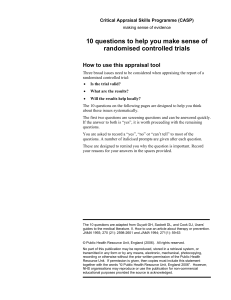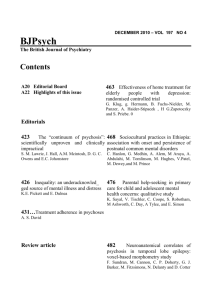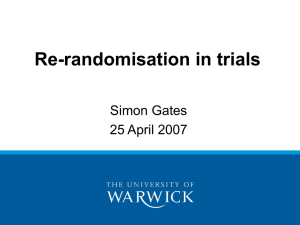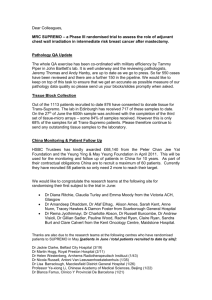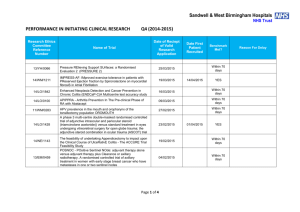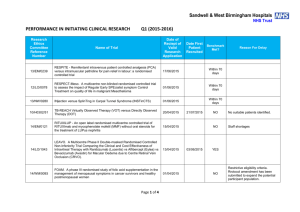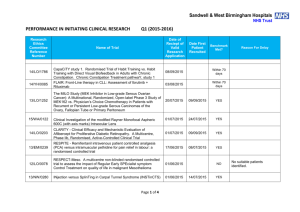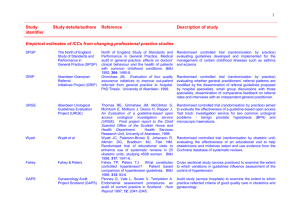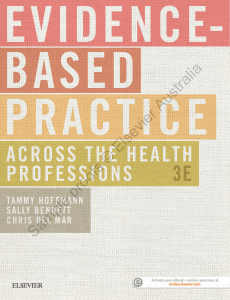Engineering Editorial quality in health QUALITY
advertisement
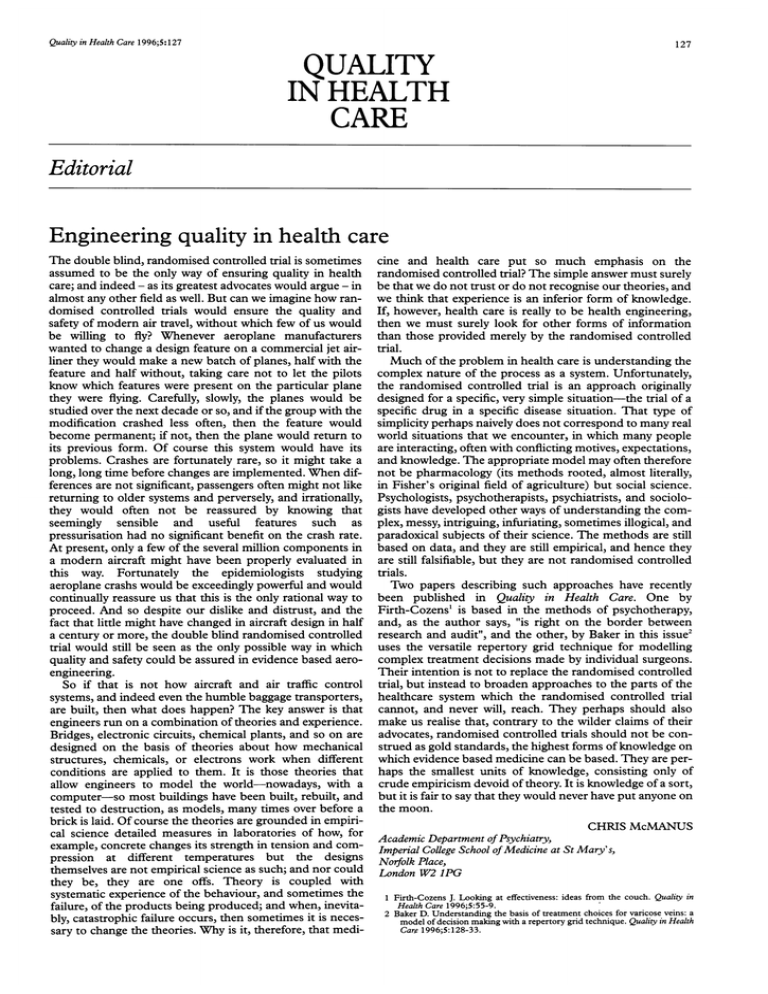
Quality in Health Care 1996;5:127 127 QUALITY IN HEALTH CARE Editorial Engineering quality in health care The double blind, randomised controlled trial is sometimes assumed to be the only way of ensuring quality in health care; and indeed - as its greatest advocates would argue - in almost any other field as well. But can we imagine how randomised controlled trials would ensure the quality and safety of modern air travel, without which few of us would be willing to fly? Whenever aeroplane manufacturers wanted to change a design feature on a commercial jet airliner they would make a new batch of planes, half with the feature and half without, taking care not to let the pilots know which features were present on the particular plane they were flying. Carefully, slowly, the planes would be studied over the next decade or so, and if the group with the modification crashed less often, then the feature would become permanent; if not, then the plane would return to its previous form. Of course this system would have its problems. Crashes are fortunately rare, so it might take a long, long time before changes are implemented. When differences are not significant, passengers often might not like returning to older systems and perversely, and irrationally, they would often not be reassured by knowing that seemingly sensible and useful features such as pressurization had no significant benefit on the crash rate. At present, only a few of the several million components in a modern aircraft might have been properly evaluated in this way. Fortunately the epidemiologists studying aeroplane crashs would be exceedingly powerful and would continually reassure us that this is the only rational way to proceed. And so despite our dislike and distrust, and the fact that little might have changed in aircraft design in half a century or more, the double blind randomised controlled trial would still be seen as the only possible way in which quality and safety could be assured in evidence based aero- engineering. cine and health care put so much emphasis on the randomised controlled trial? The simple answer must surely be that we do not trust or do not recognise our theories, and we think that experience is an inferior form of knowledge. If, however, health care is really to be health engineering, then we must surely look for other forms of information than those provided merely by the randomised controlled trial. Much of the problem in health care is understanding the complex nature of the process as a system. Unfortunately, the randomised controlled trial is an approach originally designed for a specific, very simple situation-the trial of a specific drug in a specific disease situation. That type of simplicity perhaps naively does not correspond to many real world situations that we encounter, in which many people are interacting, often with conflicting motives, expectations, and knowledge. The appropriate model may often therefore not be pharmacology (its methods rooted, almost literally, in Fisher's original field of agriculture) but social science. Psychologists, psychotherapists, psychiatrists, and sociologists have developed other ways of understanding the complex, messy, intriguing, infuriating, sometimes illogical, and paradoxical subjects of their science. The methods are still based on data, and they are still empirical, and hence they are still falsifiable, but they are not randomised controlled trials. Two papers describing such approaches have recently been published in Quality in Health Care. One by Firth-Cozens' is based in the methods of psychotherapy, and, as the author says, "is right on the border between research and audit", and the other, by Baker in this issue2 uses the versatile repertory grid technique for modelling complex treatment decisions made by individual surgeons. Their intention is not to replace the randomised controlled trial, but instead to broaden approaches to the parts of the healthcare system which the randomised controlled trial cannot, and never will, reach. They perhaps should also make us realise that, contrary to the wilder claims of their advocates, randomised controlled trials should not be construed as gold standards, the highest forms of knowledge on which evidence based medicine can be based. They are perhaps the smallest units of knowledge, consisting only of crude empiricism devoid of theory. It is knowledge of a sort, but it is fair to say that they would never have put anyone on the moon. So if that is not how aircraft and air traffic control systems, and indeed even the humble baggage transporters, are built, then what does happen? The key answer is that engineers run on a combination of theories and experience. Bridges, electronic circuits, chemical plants, and so on are designed on the basis of theories about how mechanical structures, chemicals, or electrons work when different conditions are applied to them. It is those theories that allow engineers to model the world-nowadays, with a computer-so most buildings have been built, rebuilt, and tested to destruction, as models, many times over before a brick is laid. Of course the theories are grounded in empiriCHRIS McMANUS cal science detailed measures in laboratories of how, for Academic Department of Psychiatry, example, concrete changes its strength in tension and com- Imperial College School of Medicine at St Mary's, pression at different temperatures but the designs Norfolk Place, themselves are not empirical science as such; and nor could London W2 JPG they be, they are one offs. Theory is coupled with systematic experience of the behaviour, and sometimes the 1 Firth-Cozens J. Looking at effectiveness: ideas from the couch. Quality in Health Care 1996;5:55-9. failure, of the products being produced; and when, inevita- 2 Baker D. Understanding the basis of treatment choices for varicose veins: a bly, catastrophic failure occurs, then sometimes it is necesmodel of decision making with a repertory grid technique. Quality in Health Care 1996;5:128-33. sary to change the theories. Why is it, therefore, that medi-
